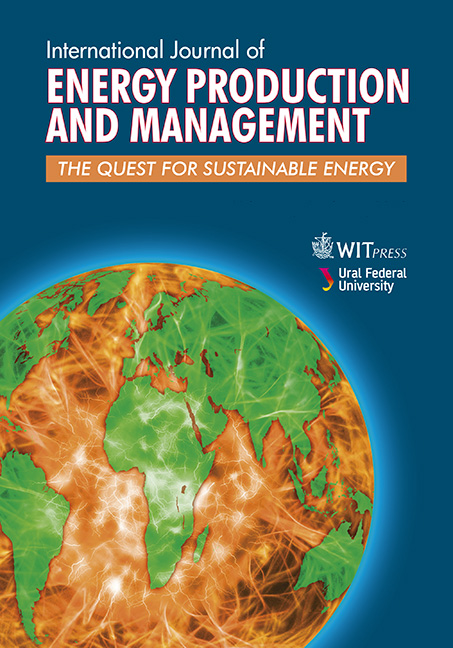Unconventional small-scale biogas production with reduced local impact
Price
Free (open access)
Volume
Volume 4 (2019), Issue 3
Pages
10
Page Range
198 - 208
Paper DOI
10.2495/EQ-V4-N3-198-208
Copyright
WIT Press
Author(s)
Elena Cristina Rada, Luca Costa, Cecilia Pradella, Luca Adami, Marco Schiavon, Elena Magaril & Vincenzo Torretta
Abstract
One of the problems of food waste management is the acceptability of the treatment plants at local level because of the risk of odours. Anaerobic digestion as first step before composting has contributed to solve this problem, but, in the sector, it remains an opposition to large plants. That affects also food waste anaerobic digestion: people’s perception is that the stream coming at the gate of the plant is not theirs. The present paper shows an alternative to the conventional approach. The aim is to reduce the scale of the intervention giving a solution also to small municipalities or to an aggregation of small municipalities. The basic idea is suitable for adaptations depending on the local availability of manure and other plants specialised on wastewater. The integrability of these plants allows reduc- ing the costs for treating secondary streams to be managed, as discussed in the article. The extreme technological scenario is based on an anaerobic digester with unconventional pre-treatment of food waste and energy recovery, on a hydro-thermal carbonisation reactor for manure, on an ammonia separator for product recovery (by stripping), on a CO2 separator (from off-gases), on a hydro-biochar flusher for opening to land application and on mechanised small-scale composters for small communities. The principles of the circular economy are adopted, but the economic balance is affected by the transport costs of the products. The suitability of this approach to medium income countries is discussed too.
Keywords
anaerobic digestion, circular economy, decentralization, discarded biomass, environmental sustainability, food waste, HTC, manure, renewable energy, waste management.




